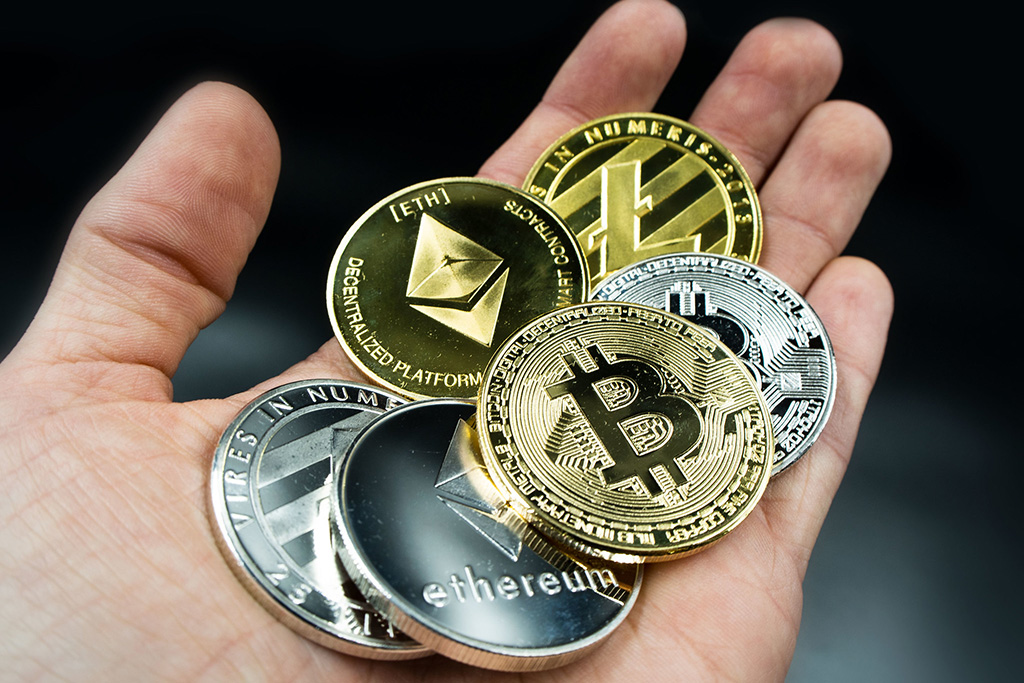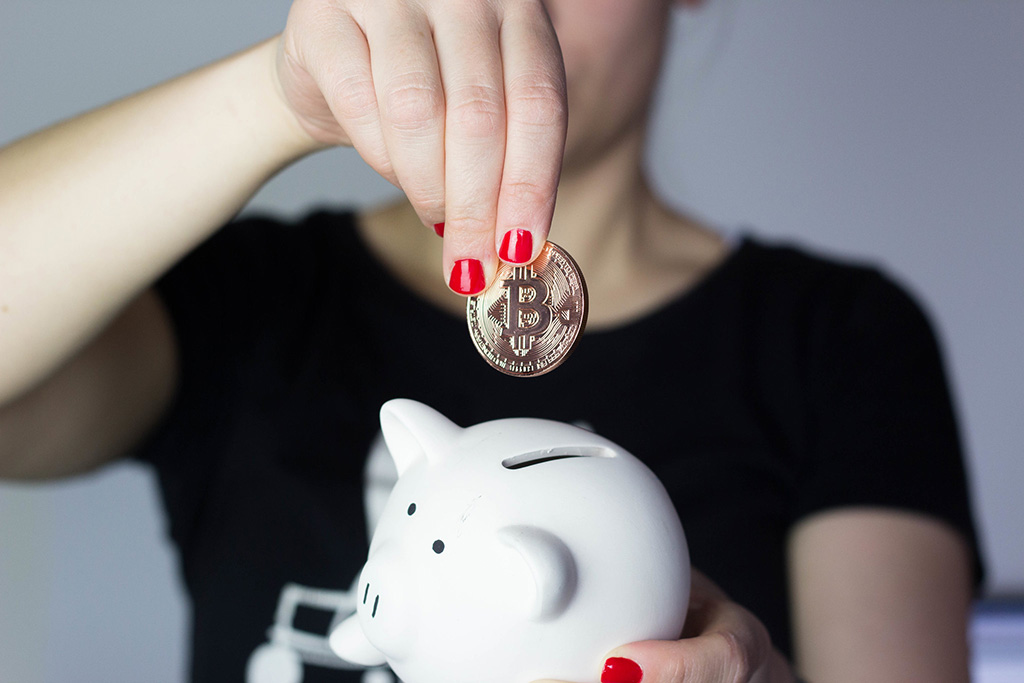Looking for the very best altcoins for [cur_year]? We’ve chosen 10 of the most promising altcoins, based on our analysis, project ...
What Is Cryptocurrency?
Last Updatedby Azeez Mustapha · 8 mins read

Please check out our comprehensive guide on cryptocurrencies, written specifically for beginner crypto traders and other crypto enthusiasts to better understand what cryptocurrencies are really about.
As with any currency, cryptocurrencies can be used as a legal tender in the exchange of goods and services. Cryptocurrencies, unlike other normal currencies, are digital, and they use cryptographic technology which provides a very secure code to track online transactions.
A lot of cryptocurrencies have decentralized systems that are based on blockchain technology, which is a distributed ledger implemented by a scattered network of computers. One of the prominent characteristics of a cryptocurrency is its open-source nature which makes it invulnerable from the government or any other authority manipulation or control.
History of Cryptocurrency

Photo: Unsplash
Different attempts were made during the 1990s tech boom by different systems like Beenz, Digicash and so on, trying to enter the market. But all these came to naught due to negative reasons like fraud, financial issues and problems between workers. Eventually, all of those systems employed a ‘Trusted Third Party’ approach, which meant that the companies behind the systems verified and carried out the transactions. These companies eventually failed and the hopes of having a digital currency seemed like a lost cause.
After some years, in early 2009 to be precise, a programmer or a group of programmers that were known by the name Satoshi Nakamoto came up with Bitcoin. It was described as a peer-to-peer digital cash system. The system was wholly decentralized, this meant that there were no servers involved neither were there any central controlling authority. This concept is said to closely resemble the common peer-to-peer networks used for file sharing.
A problem that was present with this system and any other payment network was the issue of ‘double spending’ which is a fraudulent means of spending the same amount twice. A possible solution was to introduce a trusted third party that served as a server that kept receipts of every transaction carried.
However, this solution posed a new problem, one that meant that there was an authority in control of your funds and personal information which defeated the purpose of a decentralized system. This led to the development of a Blockchain system.
A Blockchain is a public record of every transaction that has happened within the network, and it was available to everyone. This means that everybody on the network can view every account’s balance.
It has been evaluated as of September 2019, that there are over 17.91 million Bitcoins in circulation with a total market valuation of about $190 billion. The successes of Bitcoin have created room for several other cryptocurrencies which are known as ‘altcoins’. Some of the altcoins include Ethereum, Litecoin, XRP, Dash and a lot more. There are roughly 2200 altcoins in existence today. The current aggregate valuation of cryptocurrencies is currently at $268 billion with Bitcoin accounting for over 70 percent of that figure.
Mining Cryptocurrency

Photo: Pixabay
In Blockchain, every transaction is a file that contains both the sender’s and recipient’s wallet addresses and the number of funds exchanged. The transaction can then be signed off by the sender with his/her private key. The transaction has to eventually be broadcast across the network after it has been confirmed. This is the idea of blockchain technology.
The confirmation within the cryptocurrency network is carried out only by miners after they have solved a cryptographic puzzle. The miners take transactions, approve their legitimacy and disperse them across the network. Nodes of the network then add it to its database. Once this process is done, the transaction becomes irreversible and it cannot be forged. The miners also get a reward including a transaction fee.
All participants must come to an absolute consensus on the legitimacy of balances and transactions in a cryptocurrency network. If a consensus is not reached, the system would fail. To prevent this from happening, a plethora of rules are programmed into the network.
Cryptocurrencies utilize Blockchain technology to gain its decentralized, transparent, and immutable nature.
Some Major Cryptocurrencies

Photo: Alpari Org / Flickr
Ethereum
Ethereum is currently the second-largest digital currency. Their initial coin offering was in July 2015. It was originally authored by Vitalik Buterin, Gavin Wood, Joseph Lubin. It is currently valued at $18.215 million and it has issued 107.54 coins so far.
XRP
XRP was developed by Ripple Labs inc. its initial coin offering was in 2012. It’s has a market valuation of $11 million and has 42.9 billion coins in total. XRP has gotten immense relevance in the financial industry s as lots of banks are joining the Ripple network.
Bitcoin Cash
Bitcoin Cash, the ‘altcoin version’ of Bitcoin, which came to light in 2017 as a result of Bitcoin Core’s “Hard Fork”. It has a market cap of over $5,3 billion and has almost 19 million coins in circulation. (To learn more about BCH, please check out our Bitcoin Cash guide).
Litecoin
Litecoin was released not long after Bitcoin in October 2011. It has a current valuation of $4 billion and has issued 63.15 million coins.
Monero
Monero was designed in April 2014 by Nicolas van Saberhagen. It is said to focus on interchangeability, decentralization, and privacy. It has a current market value of $1.17 billion and has 17.18 million issued coins.
Dash
Dash was authored by Evan Duffield and issued an initial coin offering in early 2014. It is currently valued at $725 million and 9 million coins in circulation.
How to Store Your Cryptocurrency Asset

Photo: Marco Verch / Flickr
After buying into the crypto market, the next important thing to do is to choose a suitable wallet for your digital assets. Unlike other traditional currencies, cryptocurrencies are digital entities, which means that a different approach, most especially when it comes to storage. The idea of cryptocurrency storage doesn’t mean you store units of the cryptocurrency itself, it is the private keys that you use as your signature for transactions that need to be stored securely.
Choosing a reliable wallet for storing your cryptocurrency cannot be overemphasized due to recurring fraudulent activities in the cryptocurrencies market. Listed here are a few recommended wallets for cryptocurrency traders. Here are the best crypto wallets for July 2019 by a recent survey for crypto traders.
These software wallets include: Blockfolio, Evercoin, Toast wallet, Uphold, Crpytonator, Edge wallet, Coin payments, and Exodus. Although, If you are looking for a more secure and private means to safekeepings your digital assets, then offline storage is the way to go. This method involves storing your private keys on paper or hardware wallets. A popular hardware wallet is the Ledger Nano X. (To check out best options for Bitcoin storage, please visit our “How to Choose Bitcoin Wallet?” guide).
Are Cryptocurrencies Good Investments ?

Photo: Pixabay
The prospect of cryptocurrency is very appealing. It promises to make transactions between two parties without restrictions from authorities or a third party. All that will be required is the use of private and public keys to facilitate the transactions for security purposes.
Microsoft co-founder and philanthropist, Bill Gates expressed his approval of cryptocurrencies saying that cryptocurrencies are exciting because they can be used to buy things without a middleman, and could become cheaper than traditional banking transactions. He also said that they are better than traditional currencies in the sense that you do not have to be physically present to execute large transactions conveniently.
However, cryptocurrencies are very high-risk investments. Price fluctuations in the crypto market are a nightmare. In 2017, the market share of Bitcoin dropped drastically from 90 percent to about 40 percent. In August 2017, the price dropped from $20,000 to about $3000 in May of 2018. This kind of price volatility creates a quandary. For investment, Bitcoin remains the way to go as far as security, stability, and safety of principal are concerned; however, other altcoins are becoming more prominent and stable with improved privacy.
Cryptocurrencies go up in value from time to time, but many investors still do not believe that they are a sustainable investment and they are just mere speculations.
The reason for this is that cryptocurrencies, just like any other currency, generate zero cash flow. So for you as an investor to profit from it, someone else has to pay more to buy them from you than the initial price you bought. This is what is known as ‘the greater fool’ theory of investment.
Legendary investor, Warren Buffett likened Bitcoin to ordinary paper checks in an interview session, stating that while it is a very effective medium of exchange, it, just like paper checks themselves, has no real value.
Another potential problem associated with cryptocurrency is its susceptibility to hacks and server failures. This is why investors are always advised to make proper research on wallets and exchanges that they use to carry out transactions.
How to Buy Cryptocurrencies ?

Photo: Shutterstock
Cryptocurrencies are available for purchase with U.S. dollars although some cryptocurrencies require that you transact with Bitcoin or another cryptocurrency.
As already mentioned above, you will be required to have an online or offline wallet to store and utilize your digital assets. There are different ways to buy cryptocurrency. For instance, there are roughly 1,800 Bitcoin ATMs spread across 58 countries. You can also buy coins using gift cards, crypto exchanges, investment fund and by using traditional face-to-face transactions.
In conclusion, cryptocurrencies are here to stay and it is only a matter of time before they become mainstream.
Discover the 10 best crypto stocks to buy this year. Data-driven picks with expert-led analysis and market insights.
BTC Bull Token rewards holders as Bitcoin hits price milestones. This guide explores BTCBULL’s price prediction through 2030.